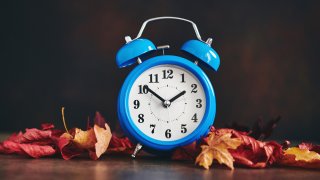
You may only lose one hour of sleep during the age-old tradition of “springing forward” this weekend, but research indicates daylight saving time can have negative effects on safety, productivity and health.
Dr. Phyllis Zee, chief of sleep medicine in the Department of Neurology at Northwestern Medicine, says daylight saving time began as an initiative to reduce electricity and maximize sunlight throughout the day to promote productivity. However, the biannual time change may just do the opposite.
According to Zee, daylight saving time causes a sudden misalignment within our biological clocks that can lead to losing focus at work and “cyberloafing,” a term for zoning out while staring at a computer screen.
“Our internal biological clocks are going to be out of sync with the sun clock which is really the strongest clock that helps keep everything together for us,” Zee said.
Misalignments due to daylight saving time can be enough to increase rates of heart attacks, diabetes and even cognitive disorders, she says.
Along with cyberloafing in the professional sphere, certain workers may be at higher safety risks, too.
“Miners may be at increased rate for accidents while they’re mining," Zee said. "So there’s really broad consequences for health and safety.”
Health
Some lawmakers in Maryland have noticed the impacts of daylight saving time and have proposed legislation to make Eastern Daylight Time year-round. Currently, Arizona and Hawaii are the only two states that do not observe daylight saving time.
Whether the bill passes or not, Zee says there are scientific ways to ease yourself into the switch that should be practiced one to two days before the time change.
“Go to bed one to two hours earlier,” she said. “Dim those lights out before you go to bed, get more physical activity, get more light during the day and stop eating two to three hours before you go to bed.”
Daylight saving time begins Sunday at 2 a.m.



